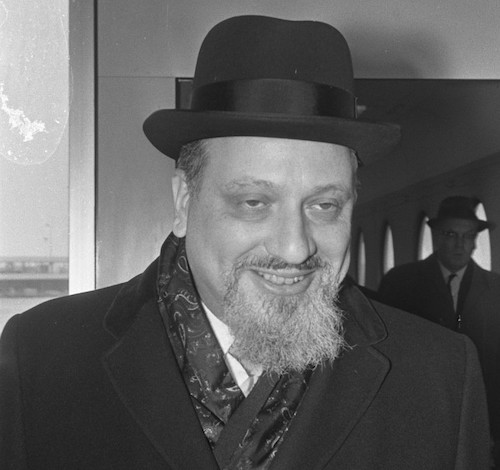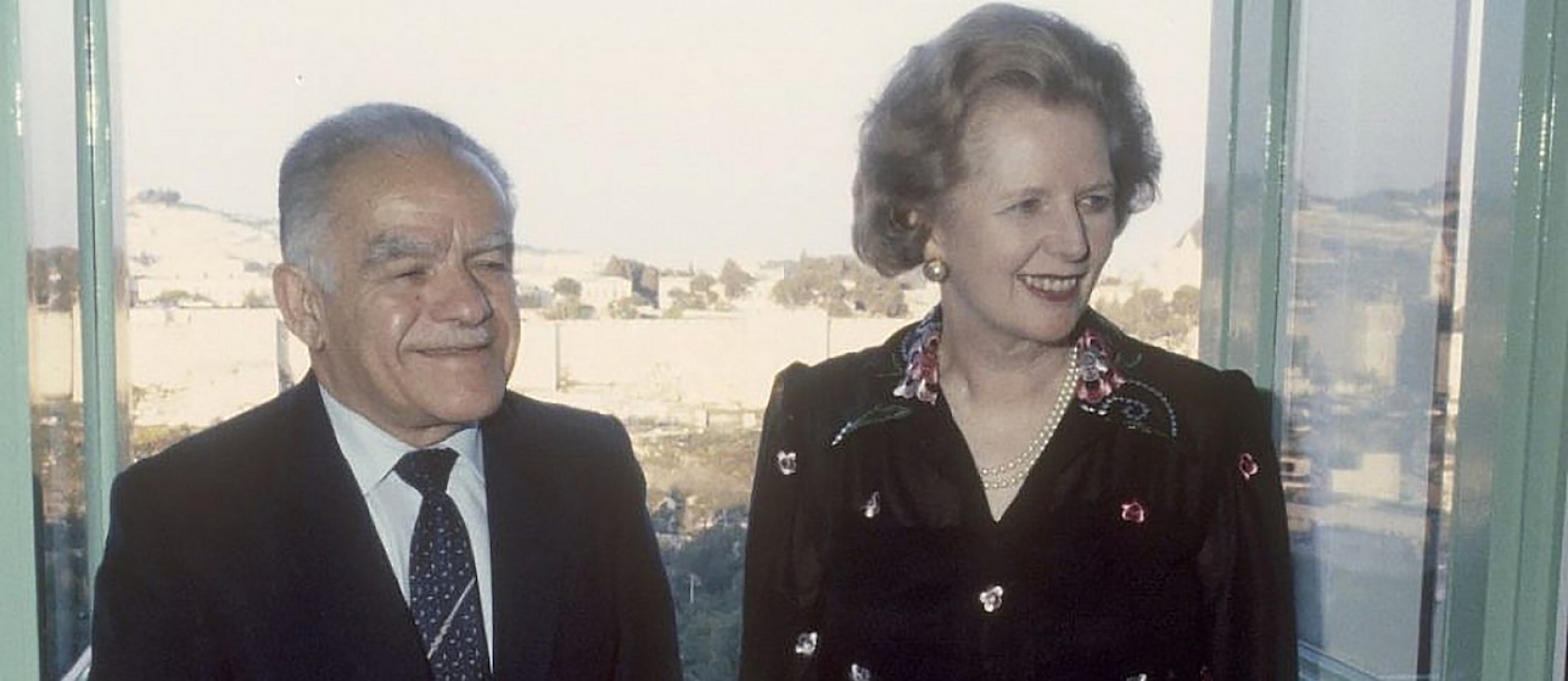Margaret Thatcher transformed the UK’s stagnant economy with a program of privatization and paring back the welfare state. This won her a savage attack from the Church of England – and a defense from the chief rabbi, who emphasized the religious and moral value of work and responsibility.
Thatcher came to office 40 years ago this May. Despite the rebounding economy, Thatcher’s Conservative Party faced the same critique that Frédéric Bastiat detailed in The Law: “Socialism, like the ancient ideas from which it springs, confuses the distinction between government and society. As a result of this, every time we object to a thing being done by government, the socialists conclude that we object to its being done at all.”
The Church of England fell into the same error. The established church became Thatcher’s “most potentially dangerous philosophical opponent in the mid-1980s,” according to Robert Philpot, who wrote the biography Margaret Thatcher: The Honorary Jew.
In 1985, the Church of England released a scathing document titled Faith in the City. The 400-page report doubled as an indictment of Thatcher’s free-market policies. It ascribed the poor state of the UK’s inner cities, and especially the plight of new immigrants and minorities, to reduced government spending and less generous social welfare programs. However, it paid scant attention to endemic problems and pathologies within theos communities, nor how a cultural and moral renewal could empower new immigrants to improve their own fate.
Thatcher, who had been raised Methodist, found an ally in Chief Rabbi Immanuel Jakobovits. She told delegates from Menachem Begin’s Israeli government that the chief rabbi had “an inspiring commitment to the old-fashioned virtues, like community self-help, individual responsibility, and personal accountability — all the things I deeply believe.”
“Oh, how I wish our own [Anglican] church leaders would take a leaf out of your Chief Rabbi’s book,” she lamented.
The affection had been returned. After her re-election in June 1983, Rabbi Jakobovits wrote that she had grounded the nation on “the firm foundations of our moral heritage.”
After the 1985 report, Jakobovits found himself torn between two friends. Then-Archbishop of Canterbury, Dr. Robert Runcie, was a close friend. However, Jakobovits found he had no choice but to respond.
At 20 pages, his rejoinder – titled From Doom to Hope – contained one-twentieth the words and 20-times the wisdom of the Anglican report. Jakobovits said he wanted to inspire modern immigrants with the history of Jewish refugees to Great Britain rising from poverty to prosperity.
He personally embodied the tenuous existence of many of his generation of immigrants. Jakobovits fled Germany in 1938, fleeing Adolf Hitler’s expanding shadow. In 1949, he was appointed Chief Rabbi of Dublin and the Irish Republic. He would teach at a large synagogue on New York City's Fifth Avenue from 1958 to 1966 – and left his children in the U.S., because the UK lacked proper Jewish schools. (He made creating these schools a top priority as chief rabbi of the UK.) He studied philosophy and became renowned for his grasp of medical ethics before being knighted on July 22, 1981, by Queen Elizabeth II.
Jewish immigrants had to “wait and struggle for several generations” before breaking into the mainstream, he wrote. But a few principles guided them from poverty to abundance. In the process of sharing them, he offered an ethical rebuttal to the Church of England’s government-centered vision. Jakobovits taught:
Work is a good in itself. He said the report would have done well to "lay greater emphasis on building up self-respect by encouraging ambition and enterprise through a more demanding and more satisfying work-ethic, which is designed to eliminate human idleness and to nurture pride in 'eating the toil of one's hands' as the first immediate targets." Work is “a virtue in itself,” he wrote. “No work is too menial to compromise human dignity and self-respect,” he wrote. “Cheap labour” is “more dignified than a free dole.”
Responsibility. “How did we break out of our ghettos and enter the mainstream of society and its privileges?” he asked. “Certainly not by riots and demonstrations.” He credited self-improvement:
Above all, we worked on ourselves, not on others. We gave a better education to our children than anybody else had. … We channeled the ambition of our youngsters to academic excellence, not flashy cars.
The family is the building block of success. “When the family breaks down, the most essential conditions for raising happy, law-abiding, and creatively ambitious citizens are frustrated,” the rabbi wrote.
Welfare is never an “entitlement.” While he believed the state had a duty to support those in dire need, this could never be considered an “entitlement,” Philpot recounts. “The poor cannot be compensated for monies which others earn,” Jakobovits wrote. The rabbi held to the view of charity expressed by Maimonides that the highest form of charity enables the recipient to get a job or start a business … and experience the joy of work.
Strikes can be immoral if they unnaturally raise wages. The Church of England’s leadership allied itself with the labor union movement – a trend continued by present Archbishop of Canterbury Justin Welby. They saw the increased wages of union workers as justification for strikes. But Rabbi Jakobovits highlighted the “crippling effects … of strikes, which paralyse entire industries.” He also saw the unseen consequences of unnaturally high wages in triggering layoffs, firings, or lack of investment. “The selfishness of workers in attempting to secure better conditions at the cost of rising unemployment and immense public misery can be just as morally indefensible as the rapaciousness of the wealthy in exploiting the working class,” he wrote of strikers.
Hard work pays off. He reassured readers by pointing out, through the history of British Jews, that “self-reliant efforts and perseverance eventually pay off.”
Thatcher felt grateful – leaving her in a decided minority.
Many of Jakobovits’ fellow Jewish leaders attacked him. Some accused him of associating “Jews and Judaism with the cruellest Conservative government since the war.” One noble person who came to his defense was Jonathan Sacks, who would also go on to serve as chief rabbi of the UK.
Despite their disagreement, Rabbi Jakobovits remained friends with Abp. Runcie, who bestowed a Lambeth Doctor of Divinity on the rabbi in 1987. Thatcher made him the first chief rabbi to sit in the House of Lords.

In 1991, he retired after 24 years as chief rabbi. At the time, Thatcher praised his “unyielding commitment to principle … and a fearless statement of values” that transcend “the life of the Jewish people” and have “lasting relevance and general application to the modern world.” The same year, Rabbi Jakobovits won the Templeton Prize for Progress in Religion.
The rabbi died 20 years ago this month – on October 31, 1999 – at the age of 78. He was buried on the Mount of Olives.
Much of his teaching has been neglected, but for a moment the most influential Jewish leader in the UK used his platform to defend a Methodist convert to Anglicanism – and announce the principles of a free economy. His life illustrates the fact that economic truths are universal, crossing all boundaries of race, class, or faith. Learning and promoting those truths must be a multifaith undertaking. Institutions that teach these principles, including the Acton Institute, forge unity among diverse people of goodwill who seek after the revealed truths of reason – and promote the well-being of all God’s children.
Related:
A Jewish perspective on justice, for Rosh Hashanah
FAQ: What is Sukkot, the ‘Feast of Tabernacles’?
FAQ: What is the Jewish holiday of Passover?
Further resources from the Acton Institute on Judaism and economics:
Judaism, Law & the Free Market: An Analysis by Joseph Isaac Lifshitz
Judaism, Markets, and Capitalism: Separating Myth from Reality by Corinne Sauer and Robert M. Sauer
(Photo credit: Margaret Thatcher with Israel's Yitzhak Shamir in 1986. Public domain.)




